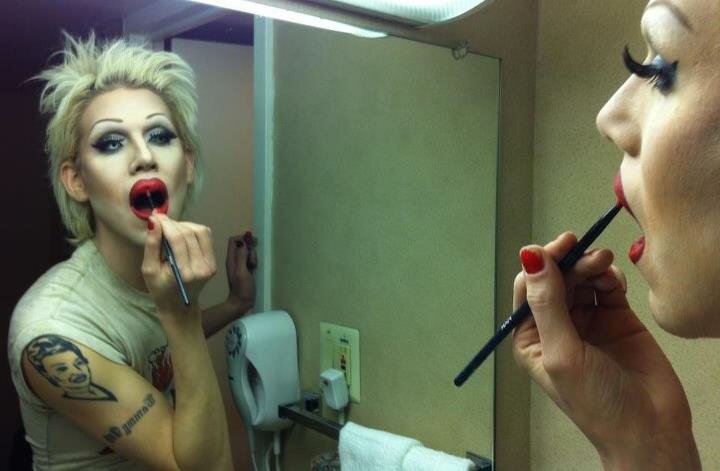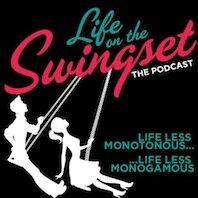 In many ways gender is no more than a theoretical concept. It is a form of identification and categorisation; pronouns, ID, bathrooms – gender helps us sort people into daily life. It could be argued that social experience begins by a child being “gendered”. In fact, nowadays, we can sort a person into one of these two categories before s/he is even born.
In many ways gender is no more than a theoretical concept. It is a form of identification and categorisation; pronouns, ID, bathrooms – gender helps us sort people into daily life. It could be argued that social experience begins by a child being “gendered”. In fact, nowadays, we can sort a person into one of these two categories before s/he is even born.
Of course, this categorisation isn’t just picked at random. A learned gender is usually based on essentialism (your biological sex). However, as we are seeing more and more, a person’s biological sex may not always be his/her preferred gender. We are encouraged in certain activities based on our gender, but our bodies don’t tell us what to be like; our parents and our peers do.
(This, of course, also relates to the nature vs. nurture argument. Personally I come down on the side of nurture. Although I have observed amazing natural traits in adopted children where I have some knowledge of their biological parents, these instances seem to be quite rare, and the overwhelming effect of nurture is fairly day-to-day.)
In Bodies That Matter Judith Butler argues that gender is performative, saying that one does not become a gender once and for all; rather, it is something one does. Drag shows, for example, could be seen as undoing the connection between gender and sex. She writes:
Performativity cannot be understood outside of a process of iterability, a regularised and constrained repetition of norms. And this repetition is not performed by a subject; this repetition is what enables a subject and constitutes the temporal condition for the subject. This iterability implies that ‘performance’ is not a singular ‘act’ or event, but a ritualised production, a ritual reiterated under and through constraint, under and through the force of prohibition and taboo, with the threat of ostracism and even death controlling and compelling the shape of the production, but not, I will insist, determining it fully in advance.
So here’s my point: the fact that I was born with a vagina is not the direct reason that I, for example, like nail varnish. I was born with a vagina and was thus raised female – given dolls and dance classes – and I settled happily into my learned gender; which is precisely what happens to the vast majority of us. We are taught a gender, and we are happy in it. We rarely question it or push it, because we are content to be what we have been taught to be – male or female.
Of course, there is a reason that as a child I was given dolls, and a cooker, and aprons, and my brother was given cars, and catapults, and yo-yos, and funnily enough it is the same reason that we have feminism: it’s because for thousands of years we have lived in a patriarchal society that says “girls like to cook and take care of babies, and boys like to fight and work”. In fact, some people would argue that we still do live in a patriarchy – what with wage inequality, and the social assumption that when a couple have children the Mother will stay at home with them. No matter how much we may wish we had always had equality, and no matter how much we may want to believe that we have it now, whether you believe that or not, we are still subject to the patriarchy of our past.
And unfortunately (no matter how much it may enrage the kink community) a part of that patriarchy is the submission of women and the dominance of men. For thousands of years women have been taught to be submissive to men as part of their feminine gender; and the opposite is true of men. This is not the kind of social assumption that we can simply undo. We are subject to the social impact of our past. Therefore, if gender is learned, and submission is part of learning a feminine gender, then it follows – does it not? – that in so far as we perceive it, submission is feminine. Not female as we understand it biologically, but feminine.
However! we are increasingly aware of a) the duality of masculine and feminine that we all have within us, and b) our freedom to eschew learned gender roles. Whilst most of us may be content in what we have been raised to “perform”, there are still more people in the world identifying as transgender and gender-neutral than ever before. Although it may be a slow process, the pressure to conform to your learned gender due to “prohibition and taboo, with the threat of ostracism” is decreasing.
We cannot undo our past and therefore it seems unlikely that submission will ever stop being related to the feminine. But what is changing already – not changed, but changing – is how we relate feminine to female/male. With terms like ‘metrosexual’ on the rise, it is becoming more and more acceptable for men to be feminine. And vice versa; we rarely hear anyone complaining about tomboys today. Therefore, whilst we may not be detaching submission from the feminine, we are detaching it from the female.
It’s a work in progress, but my main point here is that denying the truths of our history, or believing that we have evolved far beyond them, may make us feel better about how we are living now, but the changes that can allow us to realise these freedoms must, certainly, come from a place of open-eyed understanding about our past.
















